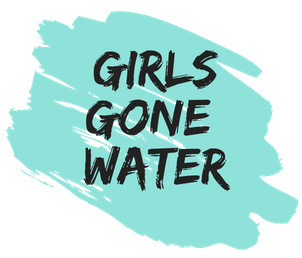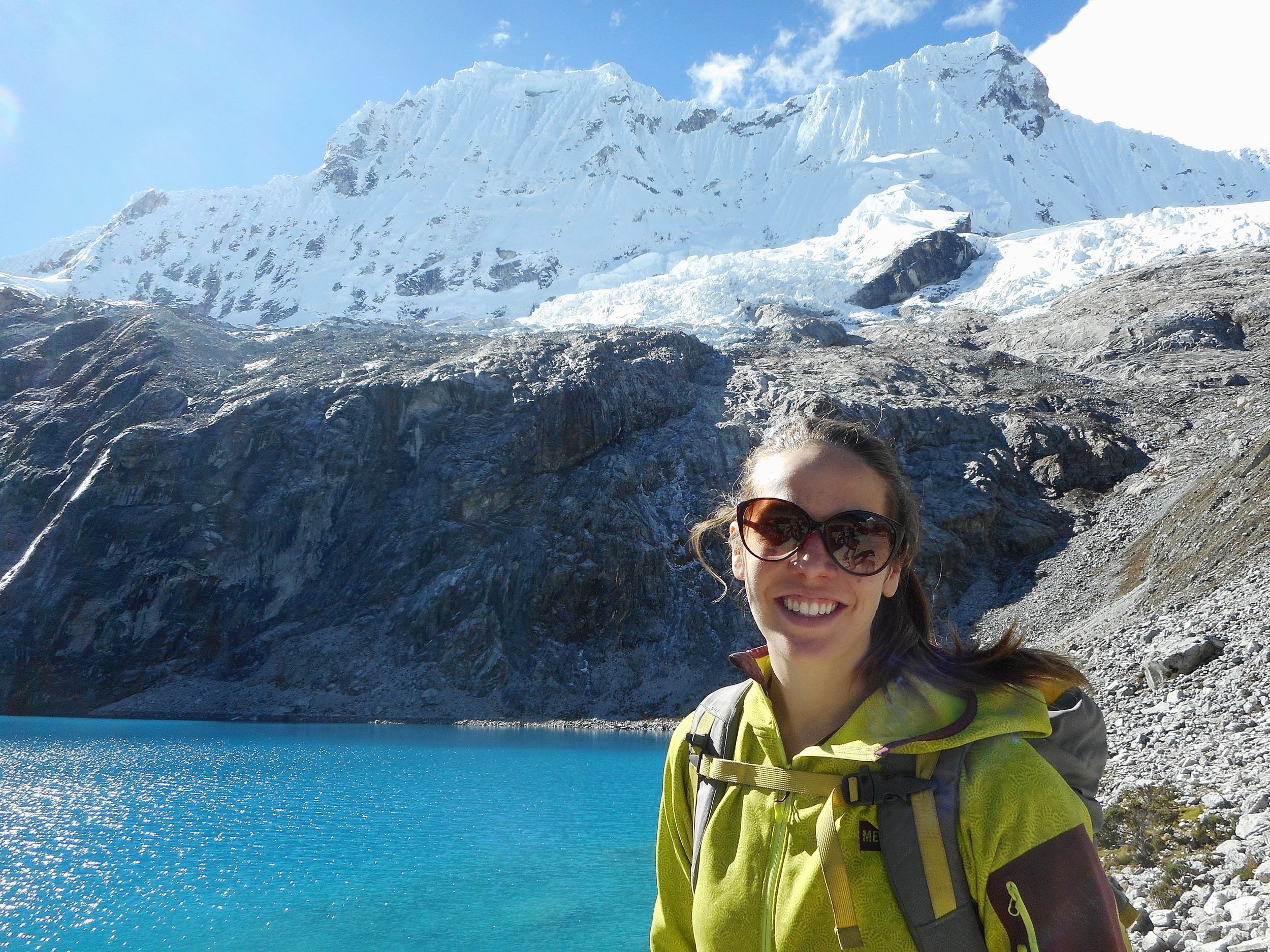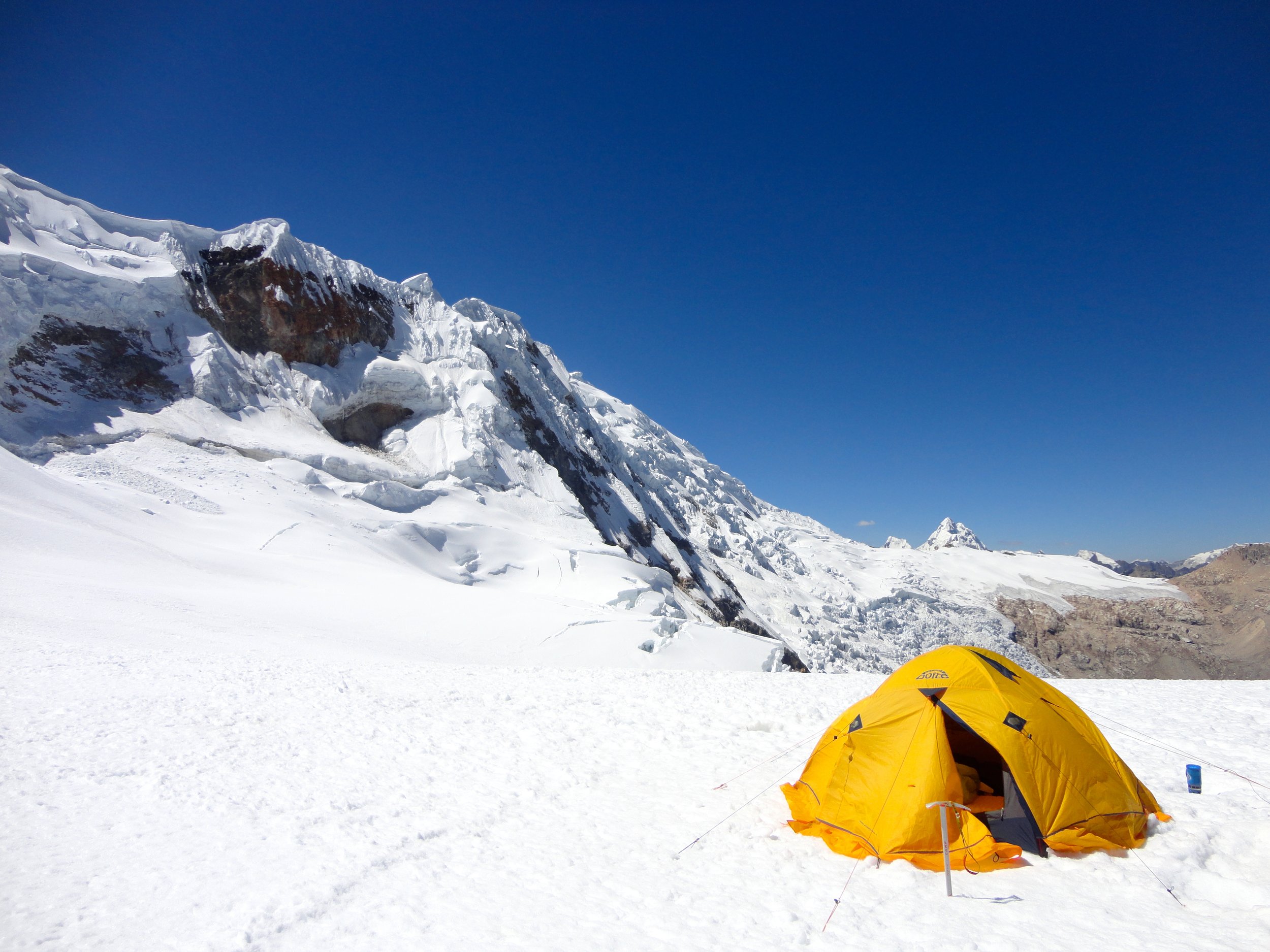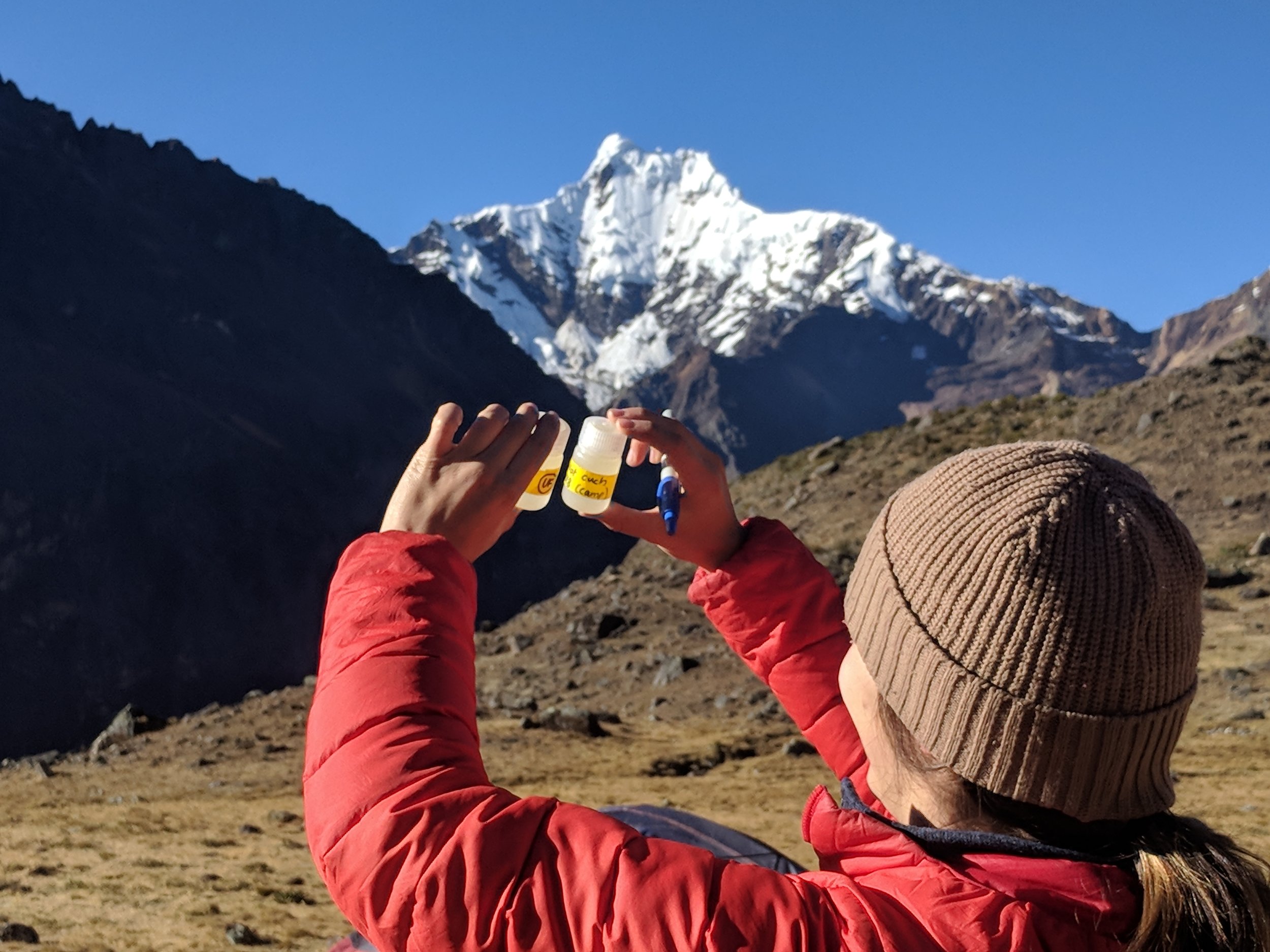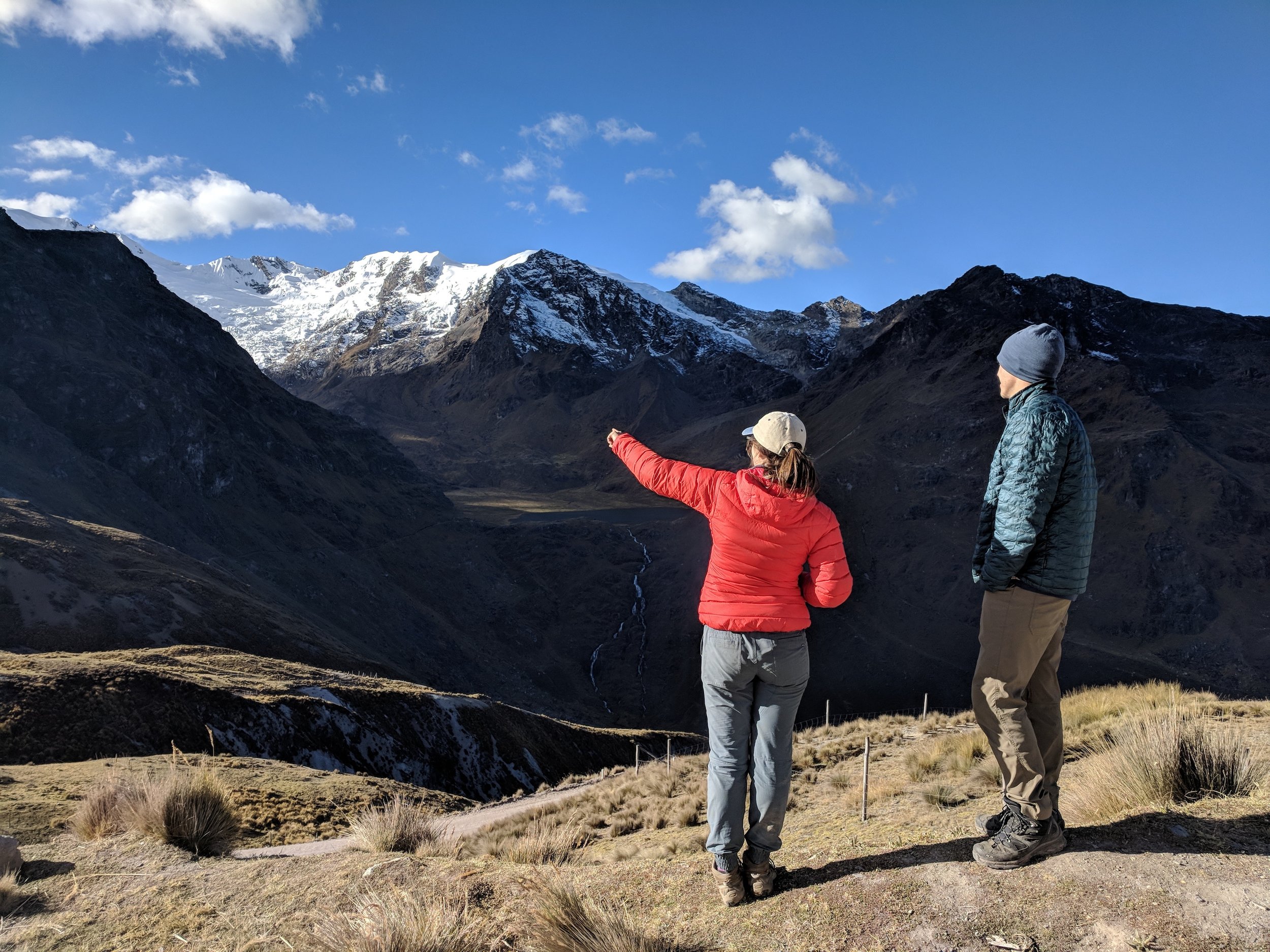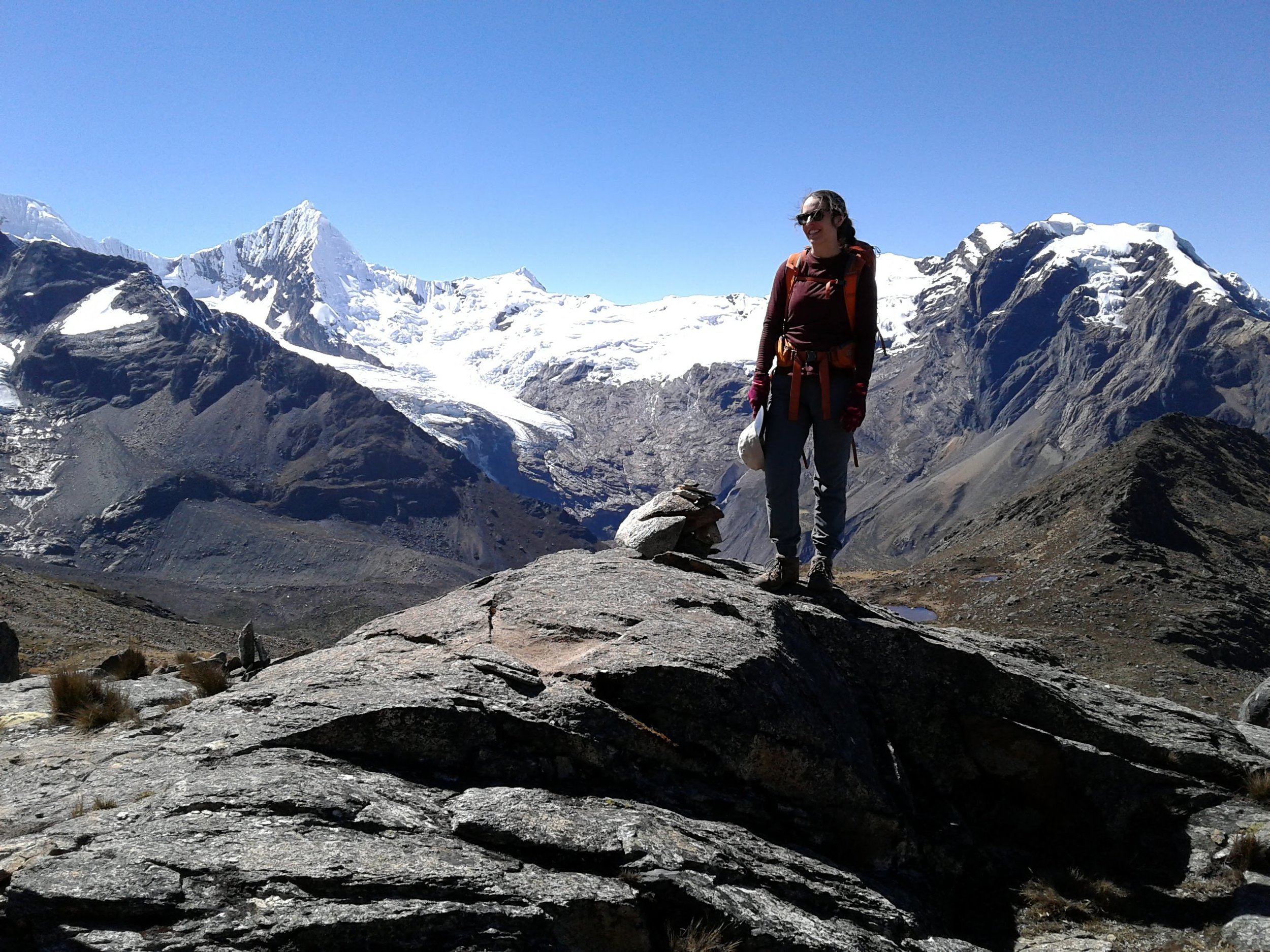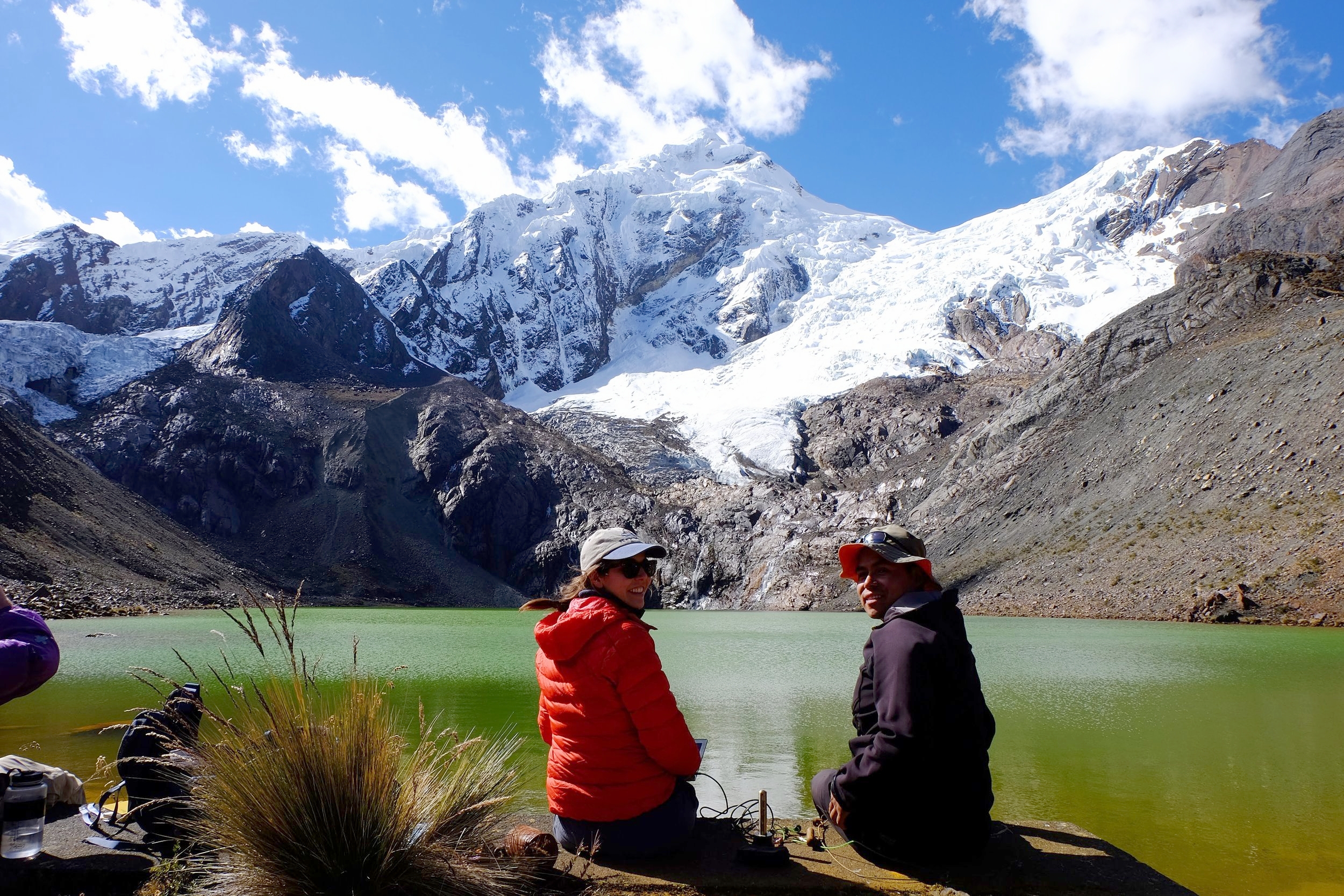Lauren Somers
PhD Student, McGill University
Lauren Somers is a hard woman to pin down: if she doesn’t have her head in the books and isn’t enjoying the coastal views of her native Nova Scotia, you might be able to find the Montreal-based PhD student atop a glacier in the Peruvian Andes or catching waves in inviting waters. Where ever in the world she is – Lauren is a force to be reckoned with and her passion for the water sector is palpable.
As an undergraduate student, Lauren studied Civil Engineering and delved into the world of water. She quickly chose a specialization in hydrology (the study of water quality, movement, and distribution on and below Earth’s surface) because of the life-sustaining importance of reliable and safe water supply for people around the world. Lauren reflects, “I knew that water supply and environmental protection were things I could be passionate about throughout my career,” and how true those words have been for her during her journey deeper into the water space.
“Working with local partners is an important way to ensure scientific work is useful to end users. These partners are crucial in informing the way science is done and disseminated.”
Now, as a PhD student at McGill University, Lauren studies how climate change and rapidly melting glaciers are affecting water resources in the Peruvian Andes. Part of that research project involves capacity-building and outreach with local Peruvian water scientists. Lauren says, “Next year, my research group is planning to transition some of our monitoring equipment to our local partners in Peru. We will hold a workshop and training session in the field that reviews procedures for using the equipment. I’m excited to play a role in highlighting and supporting the work of water scientists in Peru.”
But research isn’t just about creating knowledge to Lauren. “Communicating scientific results to the public can be challenging. Academics write papers which are submitted to scientific journals, mostly read by other scientists. These papers can be full of technical terminology, written in the wrong language and hidden behind paywalls and are therefore not very accessible to the public. Working with local partners is an important way to ensure scientific work is useful to end users. These partners are crucial in informing the way science is done and disseminated.” Outside her own research, Lauren appreciates other forms of research communication. “I also love seeing creative formats for science outreach from videos (like the Science Action video contest) to cartoons (like Frozen Ground Cartoons) and more (like the Dance your PhD competition).”
“I think it’s important for young women to be able to see themselves as scientists and engineers and to understand the breadth of options available to them in technical and scientific careers.”
Lauren’s journey has also involved reflecting on the role of diversity in the water space. Lauren observes, “I think it’s important for young women to be able to see themselves as scientists and engineers and to understand the breadth of options available to them in technical and scientific careers. When I started my degree in Civil Engineering I had no idea that I would end up working in the water sector, I didn’t even know it was an option.” Now, Lauren knows it’s not only an option, but she gets to be an example to women – young and old – around the world and share her perspective on the importance of diversity in the water space. “[H]earing about water related challenges from so many different perspectives – including at the intersections of gender and race – gives us an appreciation for the vulnerability of this very important resource and motivation to protect it.”
